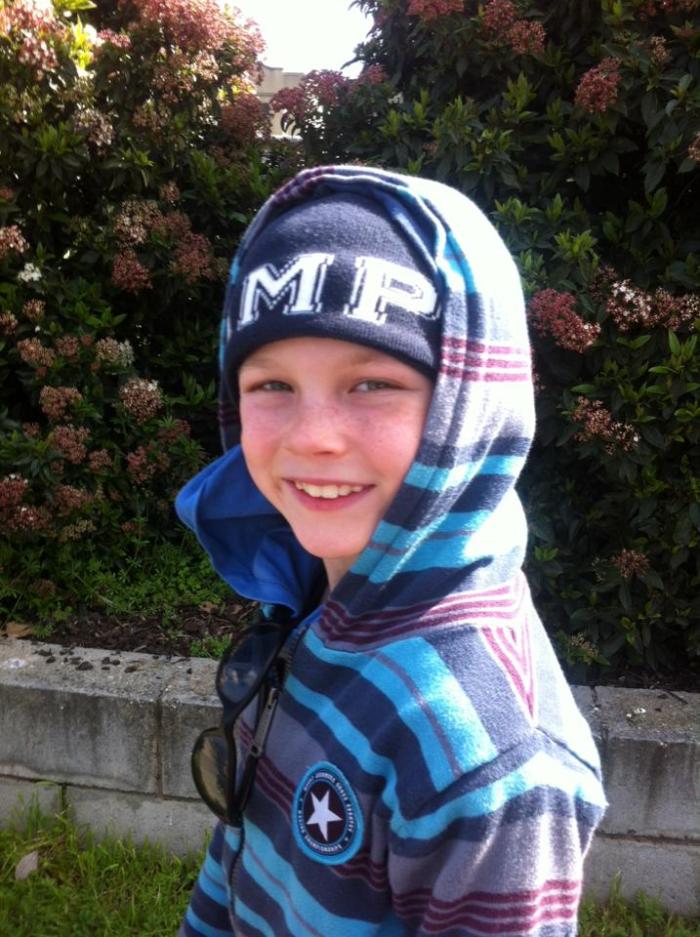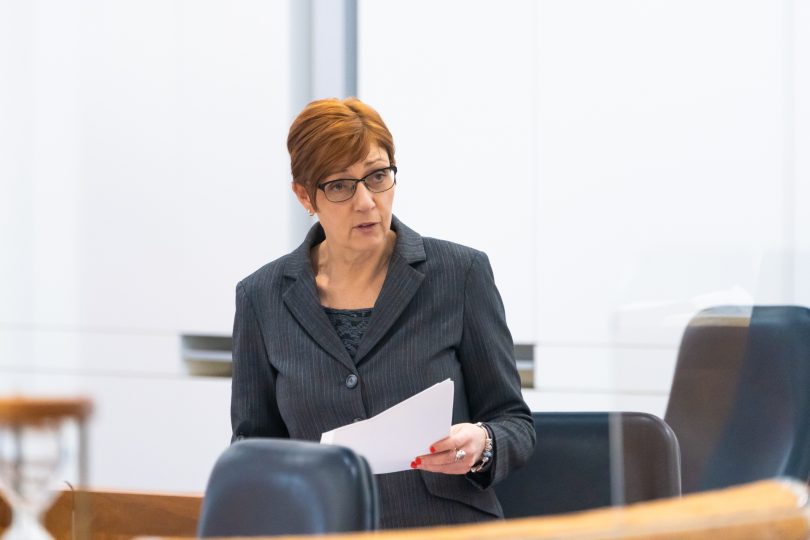
Bradyn Dillon tragically died at the hands of his father in February 2016. Photo: Rachel Jones via Jakob’s Voice.
The ACT Government has agreed to almost all of the recommendations set out by Coroner Margaret Hunter in her report on the murder of nine-year-old Bradyn Dillon, who tragically died at the hands of his father.
Minister for Families and Community Services Rachel Stephen-Smith said 16 of the 17 recommendations made by Coroner Hunter, including reforms such as improving information sharing between ACT Government directorates, had been either agreed to in principle or agreed to.
One key theme which emerged in the government’s response, tabled today (11 November), is the need for agencies to share information in a timely manner to ensure children do not disappear from the education system, as Bradyn had at some points.
Bradyn’s death in 2016 shocked Canberra to the core, as did the horrific details of the circumstances which emerged at the handing down of Coroner Hunter’s report into the matter earlier this year.
Ultimately, it was found that while no one could be held responsible for the boy’s death, there were a number of cracks in the system and missed opportunities for intervention which allowed Bradyn to fall through the cracks.
Bradyn’s father, the “master manipulator” Graham Dillon, was sentenced to 41 years in jail in 2018 for the murder of his son and a number of other offences.
At the hearing earlier this year, Coroner Hunter fought back tears as she addressed Bradyn’s mother, saying she did everything in her power to try to save her son.

Minister for Families and Community Services Rachel Stephen-Smith delivered the government’s response to the Coroner’s inquest into the murder of Bradyn Dillon today. Photo: Dominic Giannini.
Addressing the Legislative Assembly today as she tabled the government’s response to Coroner Hunter’s report, Ms Stephen-Smith said her thoughts were with Bradyn’s mother, sister and extended family.
His death, she said, “was a tragedy that continued to be deeply felt by his family and many in our community. As a community, we mourn any death that was the result of family violence, and we recognise our responsibility to do more”.
Ms Stephen-Smith went on to say the Coroner’s report had underscored the need for a sharpened focus on systemic reform of the services that protect children and young people, and the government agreed with the intent of all 17 recommendations.
Sixteen of the recommendations had been agreed to, with one noted, she told the Assembly today.
The only recommendation which was noted, rather than agreed on, was to expand the usage of the national child protection information-sharing system – Connect 4 Safety – to include a health service provider component.
However, “the ACT Government continues to actively participate in the establishment and implementation of [this system]”, the response read.
Other reforms will focus on information sharing between Child Youth Protection Services (CYPS) and the education system, including sharing real-time enrolment data.
“The timely and effective sharing of appropriate information amongst involved authorities is crucial to the delivery of informed, responsible and best-practice services for children, young people and families,” Ms Stephen-Smith said today.
The ACT Government will move to make child tracking mandatory across all schools, with parents required to provide details of where their child will be enrolled next if they are unenrolled from a school.
Creating a unique student identifier for every student is also being considered, and a pilot program is currently being developed.
The government has also agreed in principle to fund more staff at the intake level of CYPS to better meet demand.
In the 2020-21 financial year, the CYPS intake team received 21,897 child concern reports to address, an increase from the previous year in which it received 18,663.
It’s expected a new online reporting portal will also be completed this year to streamline case management.
The government will also focus on strengthening training for frontline workers, particularly those with mandated reporting requirements.
The most recent Territory budget committed $35.9 million over four years towards safer families programs, including extra money for the Domestic Violence Crisis Service and the Canberra Rape Crisis Service, Ms Stephen-Smith told the Assembly today.
If this story has raised any concerns for you, 1800RESPECT, the national 24-hour sexual assault, family and domestic violence counselling line, can be contacted on 1800 737 732. Help and support are also available through The Canberra Rape Crisis Centre 02 6247 2525, The Domestic Violence Crisis Service ACT 02 6280 0900, and Lifeline: 13 11 14. In an emergency call 000.













